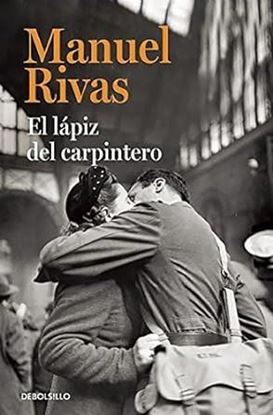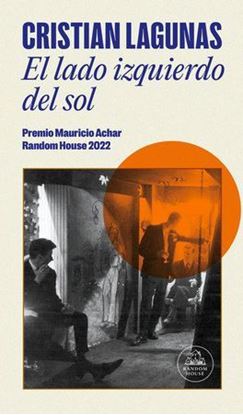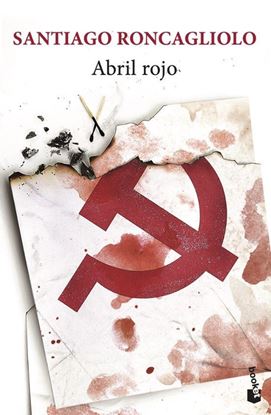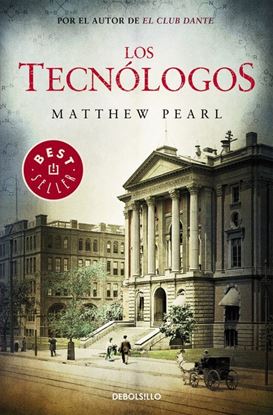

EL LAPIZ DEL CARPINTERO (BOL)
En la cárcel de Santiago de Compostela, en el verano de 1936, un pintor dibuja el Pórtico de la Gloria con un lápiz de carpintero. Los rostros de los profetas y de los ancianos de la Orquesta del Apocalipsis son los de sus compañeros republicanos de presidio. Un guardián, su futuro asesino, lo observa fascinado... La historia de ese lápiz, conductor de memorias, portador de almas, continuará hasta nuestros días.
Después de La lengua de las mariposas, Manuel Rivas retoma el hilo de la tragedia española, la guerra que estremeció al mundo y marcó la historia del siglo XX. Pero El lápiz del carpintero no es una historia más sobre la guerra. Trata de la vida de los hombres y las mujeres en el lado más salvaje de la historia. Trata de la fuerza del amor ocupando el hueco abismal de la desesperanza.
700
560
PUNTO CIEGO (BOL)
Desde que son niños, Edie, Jake y Ryan han sido inseparables; ellos tres contra el mundo. Edie pensaba que su amistad podría con todo así que, cuando su marido, Jake es brutalmente asesinado y su mejor amigo, Ryan, acusado del crimen, su mundo se desmorona.
Edie se encuentra sola por primera vez en muchos años en la casa del acantilado que compartía con Jake. Está en pleno duelo y tiene miedo, y no le faltan razones para tenerlo, pues alguien la está vigilando, alguien que lleva mucho tiempo esperando este momento. Ahora que Edie es vulnerable, el pasado del que ha intentado huir desesperadamente está a punto de llamar a su puerta.
700
560
EL LADO IZQUIERDO DEL SOL (MISHIMA)
Esta novela explora la compleja figura de Yukio Mishima, uno de los autores más fascinantes de la literatura japonesa. En 1957, a los treinta y dos años, Mishima hace un viaje a Nueva York y México para arrojarse al universo del turismo homosexual, pero también para aniquilar su pasado, el tiempo en el que escribió su primera novela y tuvo otro nombre: Hiraoka Kimitake.
El lado izquierdo del sol ilumina de igual forma ese pasado. Ahí se encuentran los instantes que van a determinar la existencia y el oficio de su protagonista. En las calles de Tokio, el joven Kimitake perfila sus ambiciones a la par que descubre el deseo. Su relación con Sito, un hibakusha, lo atormentará durante una década, hasta el presente del viaje.
700
560
ABRIL ROJO (BOL)
Félix Chacaltana Saldívar es un burócrata que lleva una vida sin sobresaltos como fiscal del distrito adjunto en Lima. Pero todo cambia cuando es enviado a su natal Ayacucho, al que regresa después de muchos años y donde debe encargarse de una extraña investigación de asesinato. En medio de las celebraciones de Semana Santa y enfrentado a la indiferencia de sus superiores, las pesquisas lo llevarán por caminos cada vez más oscuros, en los que descubrirá hasta dónde pueden llegar un hombre y la sociedad cuando la muerte se convierte en la única certeza.
En este impactante thriller Santiago Roncagliolo explora los últimos años de un periodo sangriento y aterrador en la historia de Perú, cuando la ideología terrorista de Sendero Luminoso y un gobierno marcado por el hambre y la corrupción se enfrentaron en una guerra terrible, en la que sobornos, intrigas, torturas, asesinatos y desapariciones fueron el pan de cada día.
700
560
ANATOMIA DEL AMOR (WHITESTONE 1) (BOL)
Emoción, drama y mucha pasión en una novela que fascinará a las lectoras de La hipótesis del amor.
El sueño de Laura Collins siempre ha sido seguir la estela de sus padres, que se conocieron y enamoraron en el Hospital Whitestone de Phoenix, Arizona, uno de los mejores centros médicos del país. Cuando por fin logra la ansiada plaza como residente de primer año siente que su sueño se ha cumplido y ni siquiera la ruptura con su pareja va a poder arrebatárselo.
Sin embargo, una vez allí, Laura será puesta a prueba con cada paciente, bajo el estrés, el desgaste emocional, los accidentes, enfermedades e incluso la muerte, además de sentir el miedo perenne a equivocarse. A pesar de todo, cuenta con el apoyo del resto de residentes -Mitch, Sierra, Maisie y Jane- que se convertirán casi en familia y le harán la vida más fácil.
700
560
LOS TECNOLOGOS (BOL)
¿La tecnología amenaza nuestra paz?
Un apasionantethriller histórico de vertiginosa actualidad, que enfrenta pasado y presente, tradición y tecnología, por el autor deEl club Dante.
Boston, 1868. El Instituto de Tecnología de Massachusetts se ha adjudicado la misión de utilizar la ciencia en beneficio de todos. Sin embargo, cuando los instrumentos de navegación de los buques se descontrolan inexplicablemente y, poco después, otra misteriosa catástrofe deja devastado el corazón de la ciudad, una implacable sombra se cierne sobre el MIT. ¿Se trata de un sabotaje llevado a cabo con medios científicos o es la Naturaleza que se rebela contra el intento humano de controlarla?
700
560














